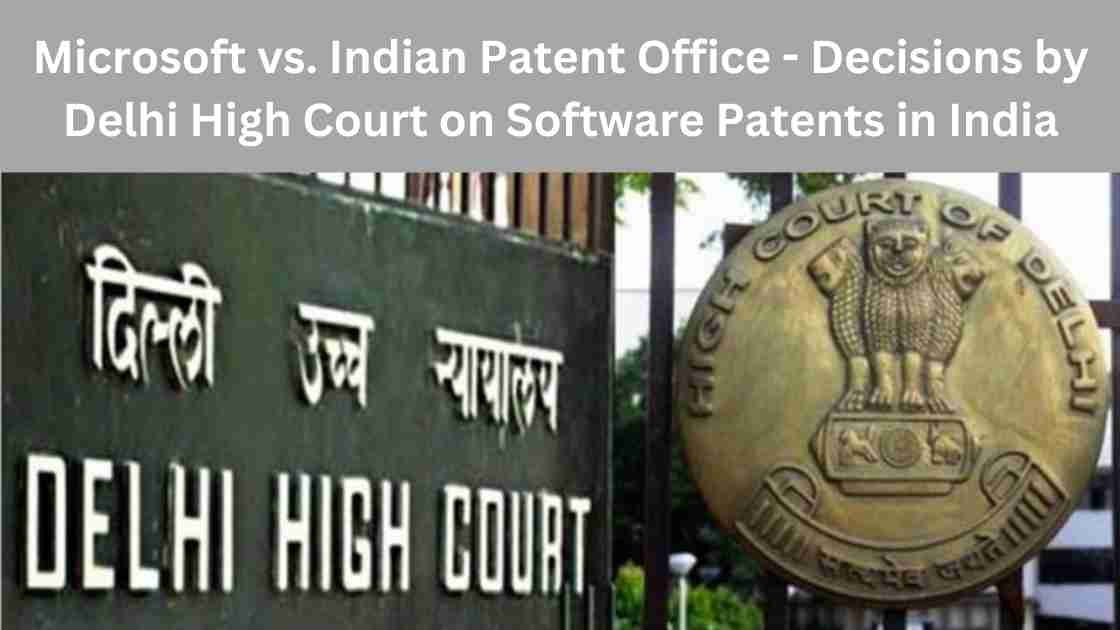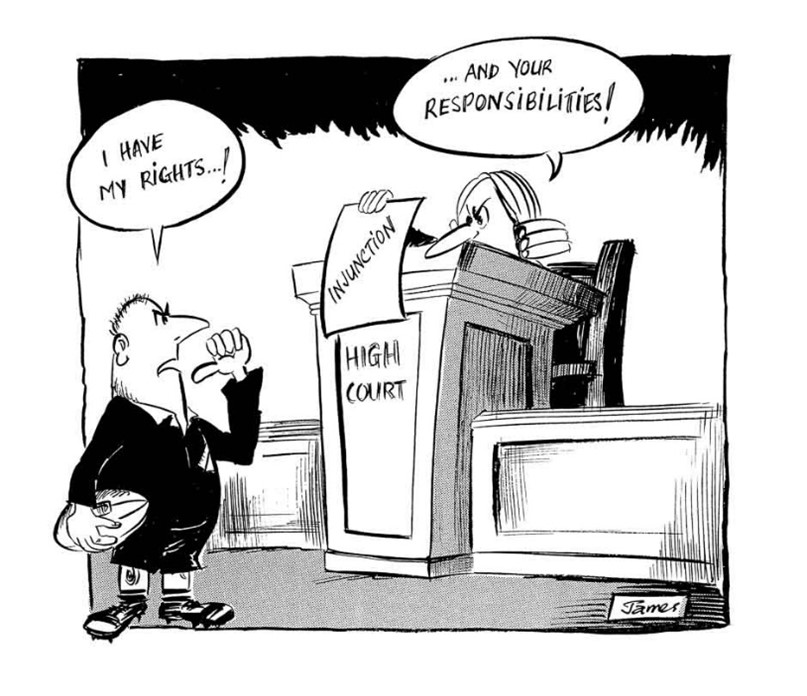
What is a Patent?
Before we answer this question, it is important to first understand what intellectual property or IP is. IP refers to intangible assets created by human intellect. e.g. copyright on any story, trademark for a logo, design for the shape of a bottle, etc. Similarly, patent is also a type of IP granted for an invention which fulfills the statutory requirements. By way of this IP, you basically get some rights.
Now coming back to patents, shorn of its statutory intricacies and procedural niceties, a patent most simply put is a right bestowed on a person, by which he can prevent others from using his invention without his consent. The key word above is invention. Not every product or process you develop qualifies to be an invention. It has to be ‘novel’. It also shouldn’t be very obvious. To make things more confounding, some things aren’t patentable at all, no matter how novel they maybe. In this article, I attempt to explain in the most simplest of terms, the above aspects and certain other things you must know regarding patents under the Indian context.
Objective behind granting patent
The idea behind patent is to promote technological development and foster scientific progress. The patent system is based on the principle of “quid pro quo”, i.e. “a thing given in return for something else”. For getting a patent, you are required to disclose your invention to the public. Therefore, in return of the complete disclosure of your invention, you are granted a monopoly over the invention for a limited period. The principle behind this is based on the belief that existing or old inventions lay the foundation for new inventions. So, people who want to develop something in the same field can continue their research on already existing inventions. On the other hand, the monopoly granted to a patentee not only helps in recouping all the investments made in the research and development of the invention but also acts as an incentive to continue inventing.
What right does Patent provides?
Patent is granted only when your invention satisfies certain requirements provided by the statute. By way of this patent, you are conferred with certain rights pertaining to your invention. Under Indian Patents law, Section 48[i] states the rights granted to a patentee. As apparent from this section, the patentee is empowered to prevent people who do not have his consent from the following activities:
- act of making the product,
- using the product,
- offering for sale of the product or selling or
- importing the product in India.
Any of the above activities without the consent of a patentee is termed as patent infringement and the person responsible for the same is called an infringer. As the statute does not bestow any right on the patentee to enable him to do anything, but on the other hand empowers him to prevent people who do not have his consent from using the patented invention in the manner prescribed in the statute. It is because of this reason that sometimes people refer patent right as a negative right.
Patent is a territorial right.
Patent is a territorial right. If a patent is granted in one jurisdiction, it does not mean that the invention will enjoy the same protection in other jurisdictions. E.g. You have a patent grant in India, but not in the US, then in case of any kind of imitation or copying of your invention in the US, you will be remediless. This clarifies that there is no such concept as international patent and in jurisdictions where a patent has not been granted, the owner of the invention will be remediless against the infringers. Thus, a patentee is required to secure himself in all jurisdictions where he thinks that potential infringement can take place. There are systems in place to file patent applications simultaneously in several jurisdictions, viz., filing under Patent Cooperation Treaty (PCT) or Paris Convention (Convention).
Patent has a limited protection period.
As mentioned before patent rights are not for eternity and are for a limited period. The monopoly on the invention helps the patentee in commercializing his invention and recoup all investments and expenditures made during the process of invention. Generally, the monopoly period provided to a patentee is 20 years in various jurisdictions. Similarly, in India the time period is 20 years from the date of application but for a national phase application under the PCT, the time period is 20 years from the international filing date accorded under the PCT.[ii] Many people across the globe believe that keeping a patent for a long period of time will restrict future research and, consequently, will also limit future developments in the same field. As a result, it has been considered that expiry of a patent is necessary to prevent long-term stagnation in the field of research and unjust enrichment. Thus, patent provide monopoly for a certain period of time over the inventions substantial enough for recouping the expenditure incurred in the process of invention.
Invention – Novelty, Inventive Step & Industrial Application
As per Indian Patents Act, 1970, patent has been defined as a patent for any invention granted under the Act.[iii] So, the basic premise of a patent is an invention which is again defined in Section 2(1)(j), where invention means a new product or process involving an inventive step and capable of industrial application. Here, we need to understand though invention can be a product, a formulation, a system, an apparatus, a method of doing something, or a process of getting a product, the Patents Act, 1970, largely, consider all the above inventions under two categories, viz., a product or a process. Once, the invention satisfies all the conditions (novelty, inventive step and industrial applicability), a patent is granted to the applicant who after grant is referred as a patentee.
While our statute does not define novelty, it has provided definition of new invention[iv] and in addition defines inventive step[v] and capable of industrial application[vi]. A new invention basically means which was not known to the public before you came up with your invention. For inventive step it has to be shown that a person who is working on the same subject-area could not have thought of something similar based on already existing inventions. Therefore, as per Section 2(1)(ja) of the Patents Act, 1970 you are required to highlight the technical advancement or any economic significance or both brought out by your invention. Lastly, you have to show that your invention is capable of being made or used in the industry.
For easy understanding, we may consider an example where wheelchair is your invention that no one in the world has seen it before. Firstly, it qualifies the requirement of new invention as no one has seen it or used it before anywhere in the world. Secondly, we can argue that chair and wheels belong to different technical domains and adding wheels to a chair makes it movable and easy for people with disability to easily commute. Therefore, there is technical advancement and economic significance, which establishes presence of inventive step. Since, both chair and wheels are capable of being made and used in the industry it satisfies the requirement of industrial applicability.
Other than these three mandatory requirements, the invention has to cross the hurdle of subject-matter patentability provided under Section 3 of the Patents Act.
How do you get a patent?
Now that you have understood the relevance of patents, you must be pondering as to how to get a patent. For getting a patent, you are required to file an application with the patent office in such jurisdictions. For a step by step guide for filing procedure in India you can refer to this article Patent Filing Procedure in India authored by the Consulting Counsel of Acura IP Services, Adv. Gopikrishnan Mukundan. Filing a patent application and undergoing examination of the patent offices, hearings etc. may seem to be a long and daunting task. This becomes much easier when a patent attorney with his able guidance is able to handhold you throughout the entire procedure. So, if you have an amazing invention, don’t waste your time. Contact us right away. Our free first consultation can take you in the right direction.
[i] 48. Rights of patentees.—Subject to the other provisions contained in this Act and the conditions specified in section 47, a patent granted under this Act shall confer upon the patentee—
(a) where the subject matter of the patent is a product, the exclusive right to prevent third parties, who do not have his consent, from the act of making, using, offering for sale, selling or importing for those purposes that product in India;
(b) where the subject matter of the patent is a process, the exclusive right to prevent third parties, who do not have his consent, from the act of using that process, and from the act of using, offering for sale, selling or importing for those purposes the product obtained directly by that process in India:
[ii]53. Term of patent.—(1) Subject to the provisions of this Act, the term of every patent granted, after the commencement of the Patents (Amendment) Act, 2002, and the term of every patent which has not expired and has not ceased to have effect, on the date of such commencement, under this Act, shall be twenty years from the date of filing of the application for the patent.
Explanation.—For the purposes of this sub-section, the term of patent in case of International applications filed under the Patent Cooperation Treaty designating India, shall be twenty years from the international filing date accorded under the Patent Cooperation Treaty.
(2) A patent shall cease to have effect notwithstanding anything therein or in this Act on the expiration of the period prescribed for the payment of any renewal fee, if that fee is not paid within the prescribed period or within such extended period as may be prescribed.
(3) [Omitted by the Patents (Amendment) Act, 2005]
(4) Notwithstanding anything contained in any other law for the time being in force, on cessation of the patent right due to non-payment of renewal fee or on expiry of the term of patent, the subject matter covered by the said patent shall not be entitled to any protection.
[iii] Section 2(m) of the Patents Act, 1970;
[iv] Section 2(1)(l) of the Patents Act, 1970
[v] Section 2(1)(ja) of the Patents Act, 1970
[vi] Section 2(1)(ac) of the Patents Act, 1970

Recent FAQs Published by the Indian Patent Office on Form 27
The Indian Patent Office recently released a comprehensive FAQ document…

A Comprehensive Guide to Patent Searches: Types, Examples, and When to Use Them
Patent searches are a crucial aspect of the patenting process.…

Microsoft vs. Indian Patent Office – Decisions by Delhi High Court on Software Patents in India
The part of this series focuses on the…

Case in Point: Sun Pharma Ltd vs. DWD Pharma Ltd
Case in Point is a new series where…
Categories
Recent Discussions
Recent FAQs Published by the Indian Patent Office on Form 27
The Indian Patent Office recently released a comprehensive FAQ document regarding Form 27, aimed at clarifying the requirements and procedures for patentees and…
Recent Discussions
A Comprehensive Guide to Patent Searches: Types, Examples, and When to Use Them
Patent searches are a crucial aspect of the patenting process. Whether you're an inventor, entrepreneur, or a legal professional, understanding the different types…


